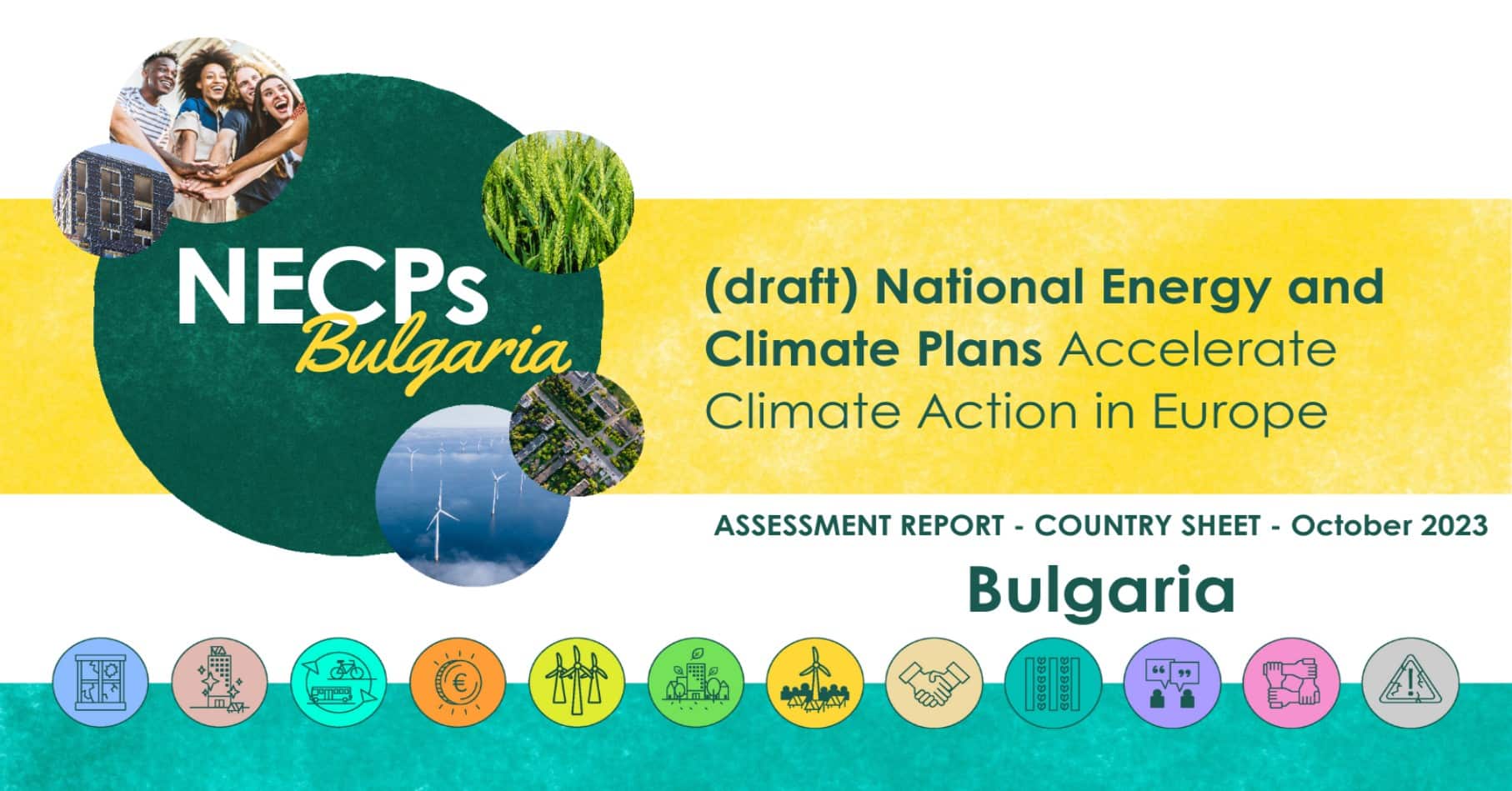Bulgaria has not yet submitted its draft National Energy and Climate Plan (NECP) update, nor started any form of public consultation, as of 30 September 2023. It is not clear what the progress on the update is, as no draft or relevant related studies have been released so far. With the new government, a first draft might be expected in late Autumn. Based on previous experiences and available information, civil society organisations have developed a set of recommendations.
24
October
GENERAL RECOMMENDATIONS
- Ensure the NECP has high ambition and is consistent with all strategic documents – including the National Recovery and Resilience Plans (NRRP) update Territorial Just Transition Plans (TJTPs) and the Roadmap to Climate Neutrality (a decarbonization Roadmap model of the Energy Transition Commission).
- Ensure all national strategic energy and climate documents are subject to a Strategic Environmental Assessment (SEA) and to the Do-Not-Significant Harm (DNSH) principle.
Climate Ambition Recommendations
- Establish a climate neutrality target and sectoral emissions targets in the national Climate Change Mitigation Act (CCMA) which will shape the NECP update.
- Significantly increase the ambition for the 2030 sectoral targets compared to the 2019 NECP, notably for buildings, transport and industry.
Energy Transition Recommendations
- Energy efficiency – Establish a national energy efficiency contribution that surpasses a minimum reduction of the Energy Efficiency Directive’s (EED) formula, amounting to no more than 13.71 Mtoe for primary energy and 8.85 for final energy consumption.
- Energy poverty – strategically address the endemic problem of energy poverty in Bulgaria, in line with its definition in the Energy Efficiency Directive, and the need to support just energy transition for energy poor and vulnerable households in the Social Climate Fund.
- Coal – Do not allow unnecessary and unfeasible coal prolongation beyond 2030, and clearly define the energy transformation role of Bulgaria’s coal and carbon intensive regions, in line with the TJTPs.
- Fossil gas – Propose a phaseout timeline for fossil gas to prevent lock-in and stranded assets, both in transit as well as in local extraction infrastructure (including offshore fossil gas extraction in the Black Sea).
- Critical assessments – Critically examine (1) the overestimation of expected electricity demand in the current Roadmap model of the Energy Transition Commission (ETC); (2) The cost, timing and feasibility factors for energy mega-projects, including new nuclear, hydro or thermal conversion.
Public Participation Recommendations
- The lack of any form of civil society involvement in the NECP revision process must be urgently addressed. A public consultation and multi-level dialogue on the draft NECP update must be ensured as soon as the draft NECP update is released. This should include public hearings and multi-stakeholder expert inputs in the Energy Transition Commission (ETC).
- The ETC – created as a multilevel dialogue platform to discuss on the Roadmap to Climate Neutrality, – must remain operational at least until the finalisation of the NECP process. This is especially relevant for aligning the NECP update with the following Long-Term Strategy update, which will require crucial input by the ETC.
Download bulgaria country sheet NECP assessment report
Download FULL NECP assessment report
PREVIOUS
NEXT

